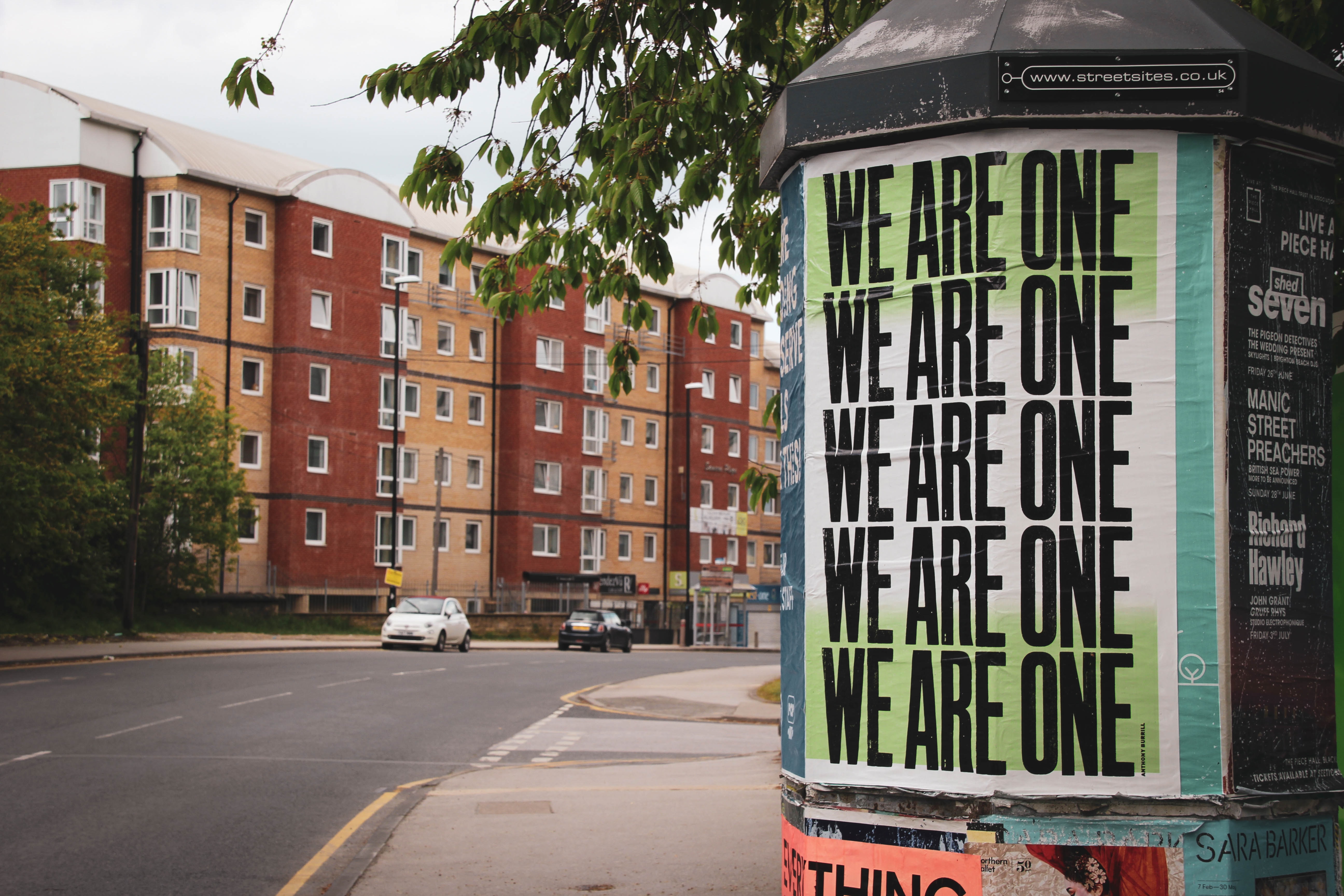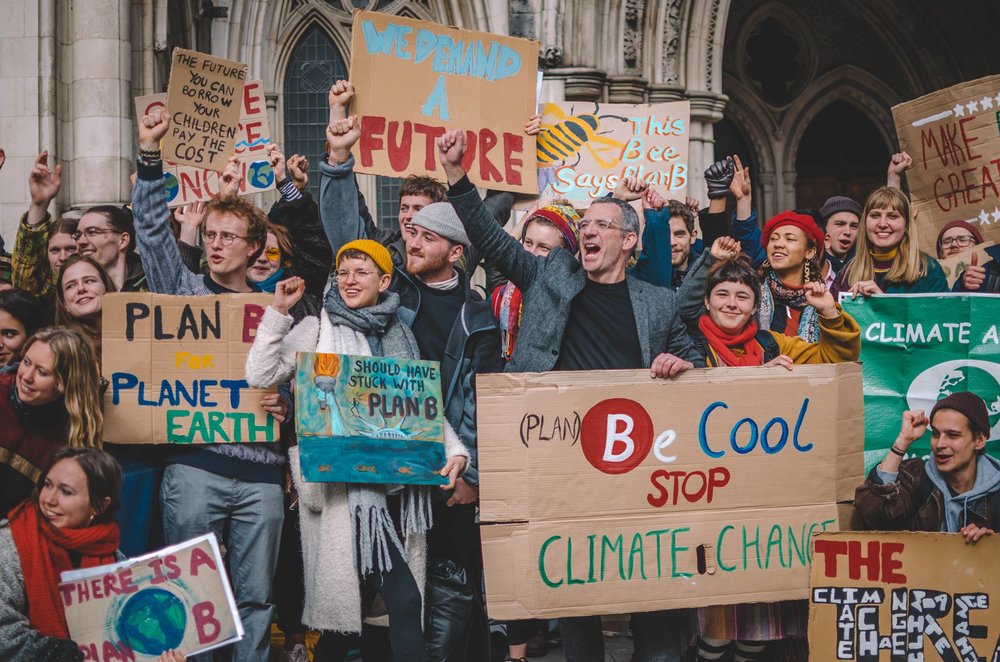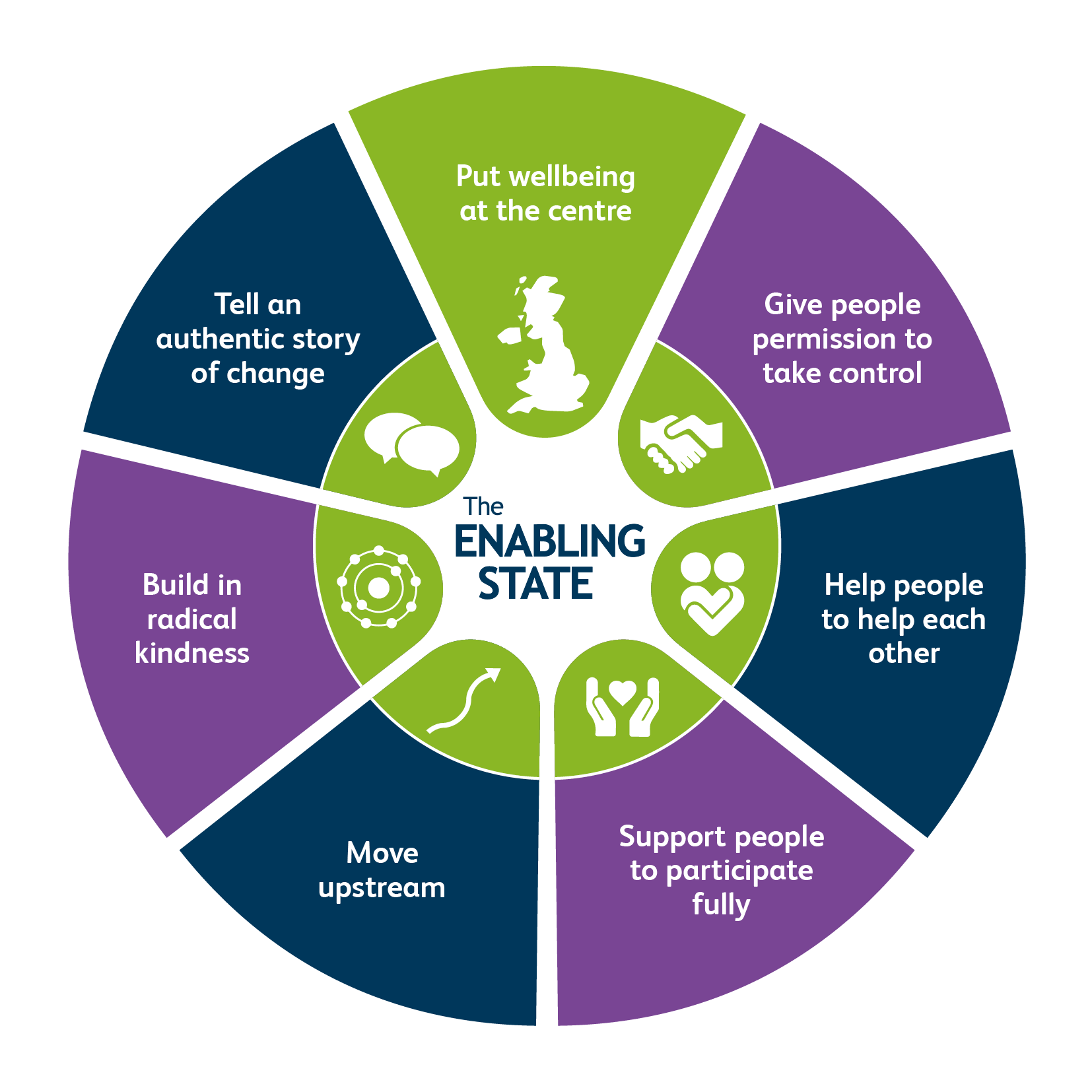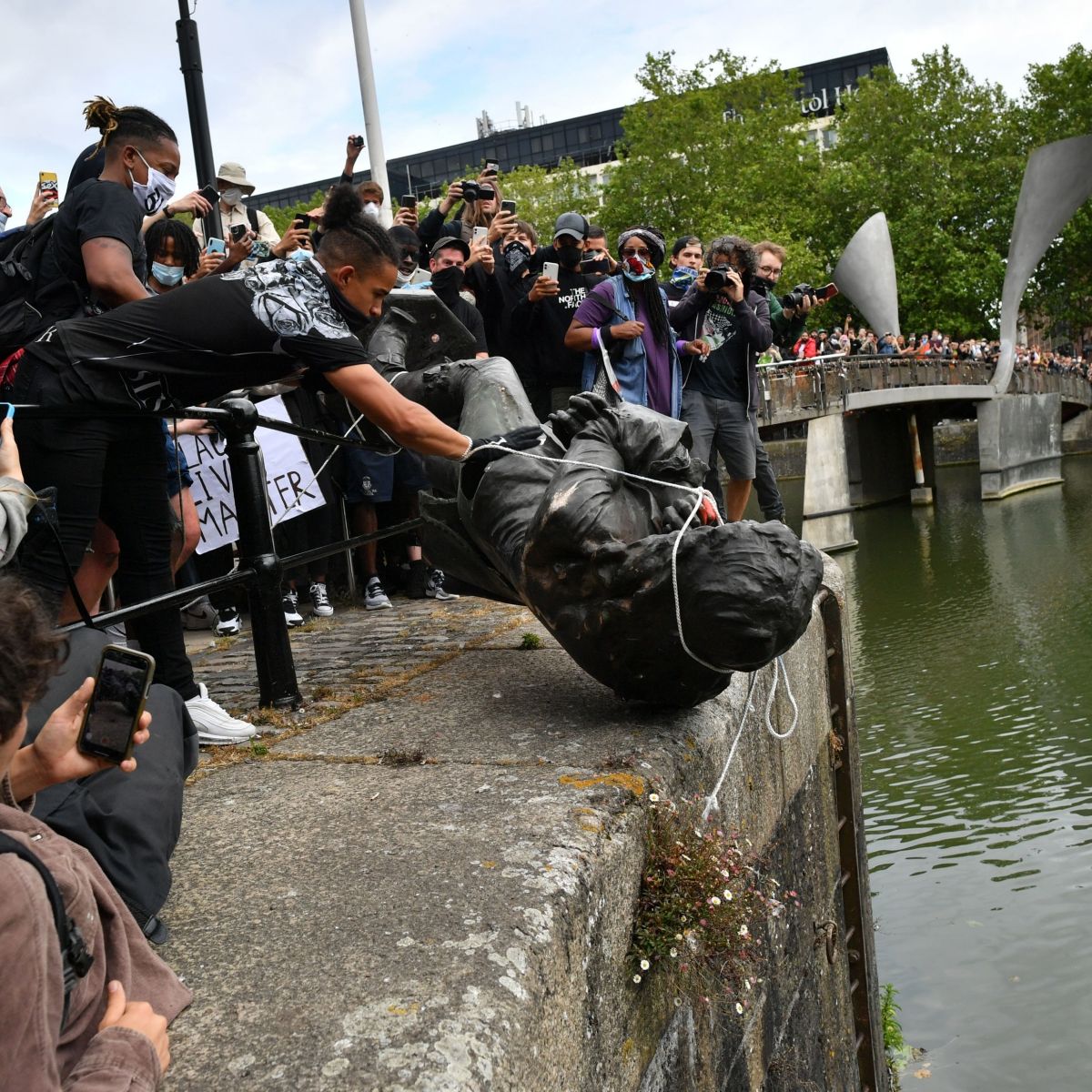Talking Points: July 2020
Posted on 05 Aug 2020 Categories: Blog, Climate crisis, Coronavirus, Talking Points
by Rethinking Poverty
With recovery packages being debated the world over, we stand at a crossroads. This month we start by looking at the widely divergent options we face, and the need for radical new economic thinking – an old chestnut for Talking Points. Talking Points goes on to ask: are we heading for a green recovery? What kind of state do we want? We end with a look at local solutions, and the inspiring example of Bristol’s Lawrence Weston community in addressing local concerns and the climate together.
#BuildBackBetter: the world at a crossroads
June’s Talking Points reported on the launch of the #BuildBackBetter coalition of over 350 organisations from business, trade unions and civil society calling for a new settlement that protects vital public services, repairs inequalities, creates good jobs and tackles the climate emergency. The urgency of tackling the climate emergency is emphasised in an article in Time magazine. From our vantage point today, writes Justin Worland, 2020 looks like the year of coronavirus. ‘In the future, we may look back at 2020 as the year we decided to keep driving off the climate cliff – or to take the last exit. Taking the threat seriously would mean using the opportunity presented by this crisis to spend on solar panels and wind farms, push companies being bailed out to cut emissions and foster greener forms of transport in cities. If we instead choose to fund new coal-fired power plants and oil wells and thoughtlessly fire up factories to urge growth, we will lock in a pathway toward climate catastrophe. There’s a divide about which way to go.’

John Harris’s two weeks on the road in lockdown Britain paints a similar picture. ‘For all the prime minister’s talk of a “fairer, greener recovery”,’ writes Harris, ‘he seems more interested in pouring concrete, laying tarmac and encouraging consumption. During the trip, mayors and academics said more could be gained if the state opened its wallet with investments to modernise the economy, create jobs and cut emissions.’ One promising development, says Dorset-based social entrepreneur Lucy Stone, is collective local initiatives. ‘“You literally give people a stake. You don’t just consult them,” she observed.’ This would represent change ‘on the scale the public desires’, comments Harris. Only 12 per cent want a return to the old ‘normal’ Britain after Covid-19, according to a poll carried out for the strategy consultancy BritainThinks.
In an article titled ‘Now Britain stands at the crossroads’, Harris draws on an essay by veteran thinker and activist Anthony Barnett titled ‘Out of the Belly of Hell’. Globalisation, says Barnett, has two increasingly irreconcilable aspects. ‘We are now faced with the “incompatibility between the economic market dogma that claimed to shape the wealth creation of the world, and an expectation of the right to life that, it turned out, accompanied its growth”. The two key questions of our time are whether a more human, collectivist way of thinking can finally be pushed to the fore, and what a different kind of economy and society might look like.’
Creating the vision
This pandemic has exposed the uselessness of orthodox economics, writes Cambridge economist Jonathan Aldred. ‘Post Covid-19, our priority should be to build resilient systems explicitly designed to withstand worst-case scenarios … Yet economic orthodoxy pushes us away from precautionary action. If mainstream economics has a single overarching objective or principle, it is efficiency. Efficiency means getting the most “bang for your buck” … But eliminating waste implies eliminating excess capacity, and we now see the consequences of that in health systems worldwide. Our obsession with efficiency, if it means failing to plan for a pandemic or a climate emergency, will cost lives. Our priority should be resilience, not efficiency.’
David Leonhardt, writing for the New York Times, presents an enticing picture of what life could look like in 2022 if we pursue a post-pandemic agenda based on reducing inequality and acting on climate change. He quotes economist Heather Boushey, who argues that progressives are better positioned to pass sweeping change in 2021 than they were in 2009, after the financial crisis. ‘“Although you had this crisis, you didn’t have the ideas that were ready to go,” Ms. Boushey said. Today, by contrast, progressives have spent years working through the details of plans on climate change, high-end tax increases, antitrust policy and more … “There is a whole vision that I think is ready,” Ms. Boushey added.’
‘The center of gravity in public discourse has shifted,’ write Leah Zamore and Ben Phillips. ‘As the world faces the ongoing pandemic and its cascading social, economic, and cultural effects, policies that only months ago were seen as politically farfetched now look like just the starting point. Policymakers will need to catch up—and fast.’
Are we heading for a green recovery?
There is no shortage of roadmaps for a green recovery. Tackling the global nature crisis could create 400 million jobs and $10 trillion (£8 trillion) in business value each year by 2030, according to a report published by the World Economic Forum. The New Economics Foundation has recently published two reports. Building a green stimulus for Covid-19 sets out a plan for rapid investment in zero-carbon infrastructure which could create more than 400,000 jobs, while A green stimulus for housing shows how a housing retrofit programme could create hundreds of thousands of jobs, save families £400 a year, and cut household emissions by 20 per cent. The Times reports that Rishi Sunak is planning a ‘green industrial revolution’ to help to create jobs for people who are made redundant because of the pandemic.
Unfortunately Sunak’s plan may not be as good as its name suggests, which is why campaigning group Plan B has launched a legal challenge against the UK’s green recovery plans, arguing that they fail to take account of its obligations under the 2015 Paris agreement and the UK’s own net zero 2050 emissions target.

Sadly, this is not an issue for the UK alone. In an article titled ‘Governments put “green recovery” on the backburner’, the Guardian’s Fiona Harvey presents data from the Energy Policy Tracker showing that the G20 group of large economies has spent or earmarked at least $151 billion (£120 billion) of bailout cash so far to support fossil fuels, only a fifth of which is conditional on environmental requirements. This contrasts with the $89 billion (£71 billion) in stimulus spending to clean energy.
Poverty and inequality fuelled by the coronavirus crisis
More than three-quarters of the world’s richest people have reported an increase in their already vast family fortunes, despite most countries in the world suffering their worst economic contractions in decades, according to a report by the Swiss bank UBS.
By contrast, UK households are suffering the biggest financial hit since the oil crisis of the mid-1970s, according to the Resolution Foundation. A government-commissioned report warns of the looming impact of the climate emergency and urges that up to 1.5 million more children in England should get free school meals to help tackle a growing crisis of food poverty and unhealthy eating.
In Germany, too, one in five children are growing up in poverty, says a report from the Bertelsmann Foundation. The study found that there had been few improvements in recent years, and that the coronavirus crisis will likely make the situation worse.
New research in Bangladesh shows convincingly that poverty is not failure but a trap. For developing countries, writes Torsten Bell of the Resolution Foundation, the big question is why poverty lasts even when opportunities exist for individuals to earn more. ‘Brilliantly using data from a programme that gave significant resources to poor families, the authors show there is a tipping point at around $500 (£391) under which people cannot sustainably break into higher-income opportunities. The idea of a poverty trap is far from new, but such clear evidence that big pushes are needed to break out of poverty traps very much is.’
The injustice is not lost on at least some of the world’s wealthy. A group of 83 of the world’s wealthiest people have published a letter urging governments to hike taxes on the super-rich to help fund the global recovery. ‘No,’ they write, ‘we are not the ones caring for the sick in intensive care wards. We are not driving the ambulances that will bring the ill to hospitals. We are not restocking grocery store shelves or delivering food door to door. But we do have money, lots of it.’
Wanted urgently: a different kind of state

The Carnegie UK Trust has been exploring how the pandemic has affected the relationship between government, public services and citizens, and has now updated their 2014 Route Map to an Enabling State. The pandemic has accelerated ‘a shift to a more agile model of the delivery of public services that supports people and communities to achieve positive change for themselves … demonstrating that there is a different way of working together.’ The updated Route Map articulates the seven steps that public services should take as they move into recovery mode.
For Compass, there are five building blocks of transformative change, says Neal Lawson: a ‘shared and persuasive vision of a good society and good life’; a ‘policy programme that will get us there’; an electoral strategy of parties and groups that share this vision; connecting with ‘emergent and energetic forces in society’; and a political culture of pluralism and collaboration.
There is widespread agreement that a highly centralised state is not what we want. One who takes this view is the Guardian’s Simon Jenkins. ‘Rishinomics means centralisation like we’ve scarcely seen before,’ he writes. ‘While across Europe millions of local officials were mobilised to care for, police, test and trace the Covid-19 pandemic, in Britain, some 2 million local government staff were simply ignored.’
Local solutions
The Centre for Local Economic Strategies (CLES) has published three post-Covid-19 guides for local economies. Own the Future sets out an achievable vision for the just recovery and social, democratic and economic reform of localities, led by local authorities. Using the framework of community wealth building, it advocates building a new economy ‘in which wellbeing stands above economic growth’. Restoring public values explores the role for public values in public procurement, while A Green Recovery for Local Economies calls on localities across the UK to develop recovery packages centred on social, economic and environmental justice.
Throughout lockdown, the Better Way Network has been bringing together people from different sectors across the UK to understand how communities and organisations have been responding to COVID-19 and how we can use this experience to build a better future.
A model from Bristol
There has long been tension between largely white, middle class environmental activists who feel the climate should come before all else, and black and working class communities who are more focused on day-to-day economic inequality. But the Bristol mayor, Marvin Rees, the first elected black mayor in Europe, commenting in the wake of the Black Lives Matter demonstrations and the toppling of the statue of slave trader Edward Colston in Bristol, says the ultimate goals are aligned. ‘The climate is an issue of social justice,’ he says. ‘People hit first and hardest by the destruction of the planet look like me and my father.’

Nowhere is the marrying of local social concerns with climate strategy better demonstrated than in the working class community of Lawrence Weston, one of the lowest income neighbourhoods in the UK. The community is proposing to build a £5.4 million wind turbine. This would generate enough electricity to power 3,850 homes and generate an income for the community of between £50,000 and £400,000 a year, depending on borrowing costs. ‘We want an economic return as well as a reduced carbon footprint. We’ll use the cash for a training academy so that residents can get good jobs in renewable technology, energy efficiency and passive building construction,’ says full-time project development manager Mark Pepper.
Want to keep up-to-date with our coronavirus coverage? Sign up to our newsletter.
Posted on 05 Aug 2020 Categories: Blog, Climate crisis, Coronavirus, Talking Points
